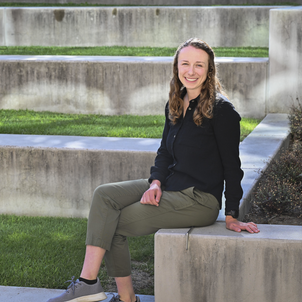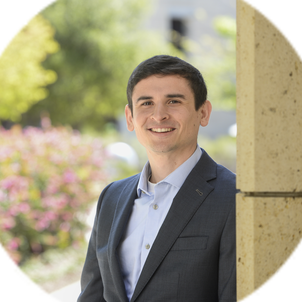Say, for instance, you want to develop efficient methods for communication and computation or find new ways to discover effective drugs. Quantum technology and nanodevices open up revolutionary possibilities in those areas. It’s an exciting field, and I enjoy sharing it with others.
Outreach has always been a passion of mine. Teaching people science is fun for so many reasons: It brings out a person’s curiosity, it trains people to think critically, and down the road, it also helps people make good decisions. I’ve done a lot of outreach over the past 15 years in many different shapes and forms – science festivals, working on exciting projects with underserved communities, making a laser harp for kids and helping them create their own science posters, and now I’m a producer for the Goggles Optional podcast.
The podcast has given me another platform to reach so many people. When I got involved I thought to myself, “This is a great opportunity. I still have two years at Stanford, so I can actually join the team I’ve been listening to on radio.” There was a recruiting email looking for more writers and hosts, so I joined. I mostly talk about quantum technologies and nanotechnologies, and I try to boil the content down to simple and enticing explanations.
As a producer, I get to set the direction of the episode, but the actual content is delivered by other people. As a writer or a host, you have some sort of control, but as a producer I have to sit in the booth, hope for the best performance and try to motivate and keep everyone upbeat. Obviously, I think the team does a great job.
In a time when there is a lot of misinformation out there, we feel like it’s really important to share research-backed information with people in a fun and informative way. We have a big audience made up of people from more than 80 countries around the world and that’s really exciting.
After I leave Stanford, I’ll be starting a research lab at the University of California, Davis, and I think the podcast has been a valuable experience for my future faculty position because it’s prepared me to set a vision, delegate responsibility to other people and cheer them on along the way.
Related spotlights

Christine Baker

Thomas Colburn

